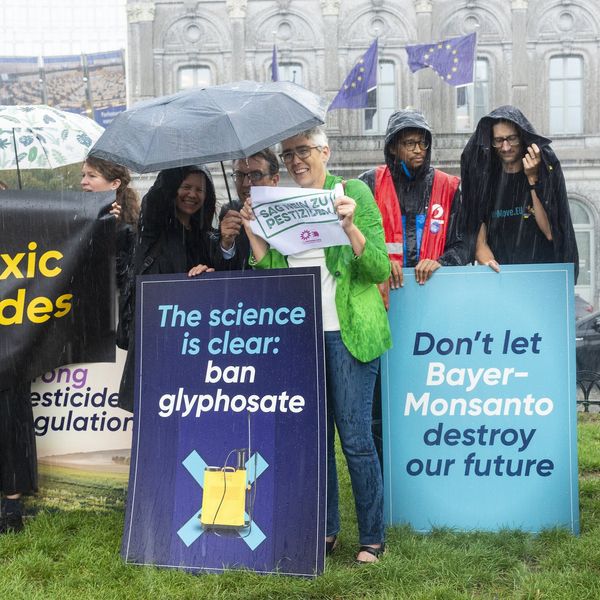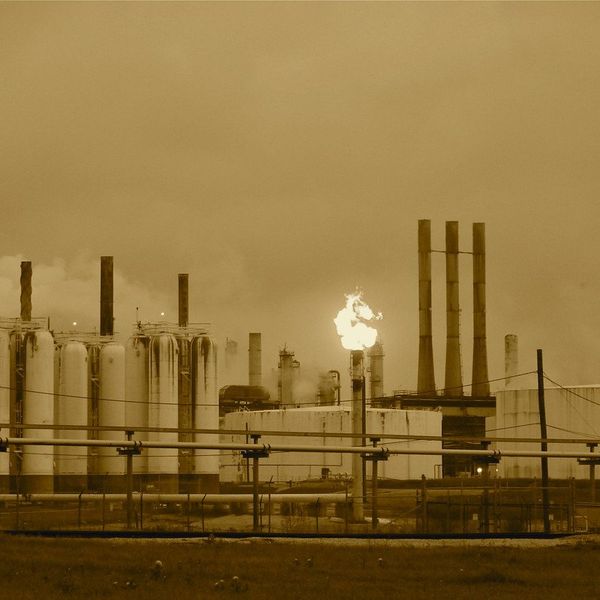Cosmetics companies could face litigation if their products are found to contain PFAS, warn attorneys, as a rash of recent lawsuits hit companies touting themselves as clean but whose products contain evidence of “forever chemicals.”
The lawsuits are a harbinger of future liabilities for the cosmetics industry, with efforts underway in the U.S. to restrict the sale of makeup made with the compounds—and even designate some PFAS as hazardous.
Related: What are PFAS?
“You've heard those, probably in the legal field, saying for many months now that these [studies finding PFAS in cosmetics] will likely trigger a lot of litigation. And here we are—that has finally started to happen,” said Ally Cunningham, environmental attorney at Lathrop GPM, a law firm that hosted an industry webinar Wednesday. The firm says it has represented companies in some of the country’s “most publicized” PFAS cases.
Recent PFAS lawsuits highlight vulnerabilities for cosmetics industry
PFAS, or “per- and polyfluoroalkyl substances,” are a broad class of manmade compounds added to cosmetics to make them smoother, more spreadable, and longer-lasting. They also can be present in trace amounts because of their use in manufacturing processes as coatings and lubricants—and because they’re widespread in water supplies. Some PFAS have been linked to health effects ranging from liver damage to increased rates of cardiovascular problems and certain kinds of cancer.
Last year, a team of researchers from the University of Notre Dame and other institutions tested fluorine levels—a potential indicator for PFAS—in more than 200 cosmetics, finding that about half had fluorine. When they tested 29 makeup products with higher fluorine levels for individual PFAS, they found the compounds in every product.
Last December, testing from consumer wellness blog Mamavation found that 54 out of 83 products from green beauty brands contained organic fluorine.
These studies were the “springboard” for a wave of lawsuits, said Cunningham. A class-action lawsuit filed in December against bareMinerals alleged that the makeup company, which has five organic fluorine-containing products, “unfairly gained the trust of consumers” by advertising that its products were “free of harsh chemicals,” among other claims.
That same month, Toxin Free USA, a nonprofit organization focused on food and the environment, sued CoverGirl for false advertising after testing showed that its TruBlend pressed powder foundation contained organic fluorine levels of more than 6,000 parts per million (ppm)—for reference, experts say that 100ppm or higher likely indicates intentional use of PFAS. The nonprofit alleged the test results run counter to the company’s sustainability claims on its website and reports, such as touting itself as the “original founder and creator of clean beauty.”
Meanwhile, green beauty company Burt’s Bees faces a class action lawsuit filed in February based on the Mamavation testing, which found that two of its mascaras had levels of organic fluorine indicative of intentionally added PFAS.
Follow our collaboration with Mamavation on PFAS testing
Cunningham warned that makeup companies should be especially concerned about two PFAS in cosmetics lawsuits filed this month against French personal care giant L'Oréal as the lawsuits were based only on the company’s general product safety representations. “Up until this point, it felt like you were only ripe for a potential lawsuit if you were really focused on that green advertising,” said Cunningham. “And the L'Oréal lawsuit shows us that that's no longer the case.”
While the lawsuits seem unlikely to succeed given a 2018 Danish study that found PFAS levels in makeup are too low to pose a risk to wearers , the potential for litigation still represents a “real vulnerability” for the cosmetics industry, Cunningham said.
She drew parallels to a rash of lawsuits facing grocers like Kroger and Albertsons after it was discovered that some of their compostable dishware likely contained PFAS. Kroger agreed in a settlement reached last year to stop saying that the product line in question was compostable.
Companies face “quickly changing landscape”
Besides potential lawsuits, the cosmetic industry has other causes for concern as the U.S. Environmental Protection Agency moves to regulate the compounds, webinar presenters said. The agency’s request to list PFOA and PFOS, two especially toxic PFAS, as hazardous substances could create “significant” cleanup responsibilities for companies that have released PFAS into the environment—particularly since other PFAS can break down into those two compounds, said Matt Walker, an attorney for Lathrop GPM.
Additionally, a number of states are looking to follow in the footsteps of Maine and Maryland, which have banned PFAS from being added to cosmetics. At least 32 states are considering laws that would ban or restrict PFAS, including their use in personal care products, according to an analysis published last month from the Safer States network.
“So it’s a quickly changing landscape (that) makes it very difficult to comply,” said Walker.
Editor's note: An earlier version of this story incoreectly named one of Lathrop GPM clients.
Follow our PFAS testing project with Mamavation at the series landing page.
Want to know more about PFAS? Check out our comprehensive guide.
Have something you want tested for PFAS? Let us know and write us at feedback@ehn.org.
Banner photo: Peter Kalonji/Unsplash
- Unintentional PFAS in products: A “jungle” of contamination - EHN ›
- Investigation: PFAS on our shelves and in our bodies - EHN ›
- States will weigh more than 210 bills on toxic “forever chemicals” in ... ›
- Green beauty product testing finds more than 60% have PFAS ... ›
- What are PFAS? - EHN ›
- CoverGirl Sued For PFAS contamination - EHN ›
- Starbucks will eliminate all PFAS in its packaging - EHN ›




























